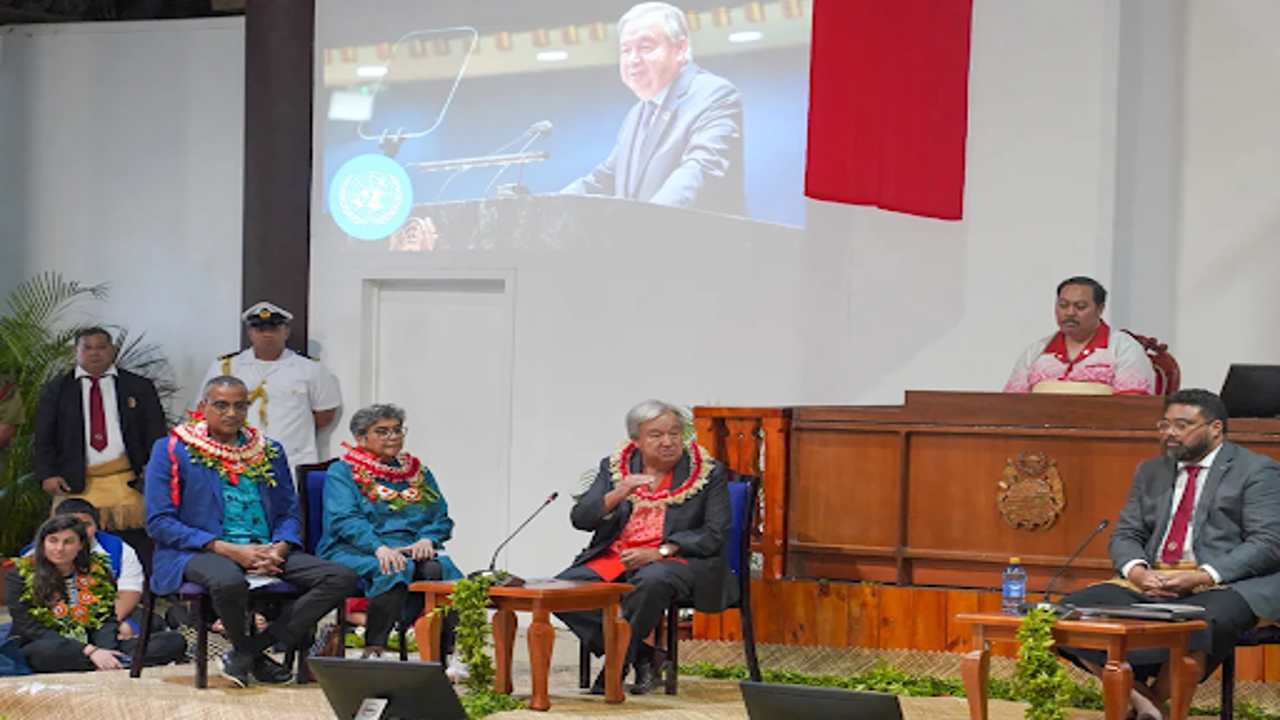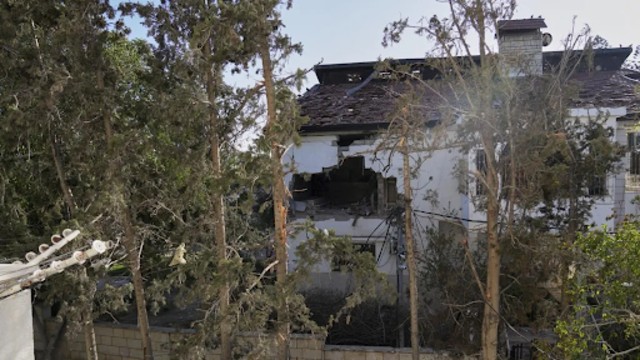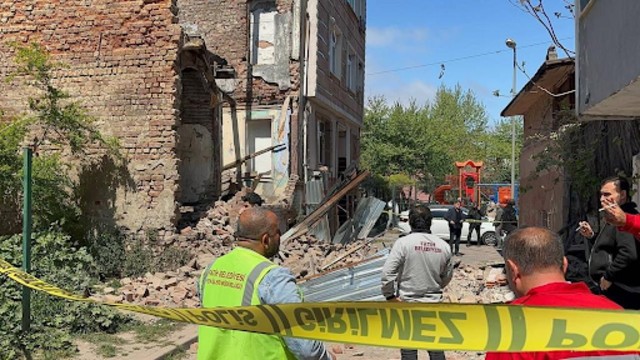
UN Secretary-General Antonio Guterres speaks alongside Tonga's Crown Prince Tupoutoa 'Ulukalala and Lord Fatafehi Fakafanua, the Speaker of Tonga's Parliament, in Nuku'alofa, Tonga, on August 26, 2024. Getty Images
The United Nations Secretary-General, Antonio Guterres, has issued a stark warning about the escalating crisis of rising sea levels, particularly in the Pacific Islands, urging the world to take immediate action before it’s too late. Speaking from Tonga, Guterres emphasized the urgent need for increased financial support and assistance for vulnerable nations facing the catastrophic impacts of climate change.
"The ocean is overflowing," Guterres declared, pointing out that the rising seas are a direct result of human activities, notably the burning of fossil fuels. He painted a grim picture of a future where the crisis could escalate to unimaginable levels, with no way to reverse the damage if urgent action isn't taken now.
This warning came during a Pacific Islands Forum meeting in Tonga's capital, Nukuʻalofa, coinciding with the release of two alarming reports from the United Nations. These reports highlight how the climate crisis is accelerating, leading to severe changes in the ocean's behaviour. According to the World Meteorological Organization (WMO), sea surface temperatures in the Southwest Pacific have increased three times faster than the global average since 1980. Additionally, sea levels in the region have risen almost twice as fast as the global average over the past 30 years.
A photo from November 27, 2019, shows waves crashing onto the shore in Majuro, the capital of the Marshall Islands. Getty Images
The reports also reveal that marine heatwaves, which have doubled in frequency and intensity, are becoming more prolonged. Oceans have absorbed 90% of the heat generated by human activities, primarily through the burning of fossil fuels, leading to ocean heating and contributing to the rise in sea levels. As water heats, it expands, and melting ice sheets and glaciers further add to the rising sea levels.
The Pacific Islands are among the hardest hit by these changes, facing what the WMO describes as a "triple whammy" of ocean heating, sea level rise, and acidification. These factors are devastating ecosystems, destroying crops, contaminating freshwater sources, and threatening the livelihoods of millions. In 2023 alone, the region experienced 34 extreme weather events, primarily storms and floods, resulting in over 200 deaths and affecting 25 million people.
WMO Secretary-General Celeste Saulo noted that the ocean is undergoing changes that will be irreversible for centuries. Human activities have diminished the ocean's ability to sustain life and protect coastal communities, turning the sea from a source of life into a growing threat.
The second UN report underscored that the climate crisis and rising sea levels are no longer distant threats, especially for the Pacific Islands. Despite contributing just 0.02% of global emissions, these islands are highly vulnerable, with most of their population living close to the coast. The report predicts that if global temperatures rise by 3 degrees Celsius above pre-industrial levels, the Pacific Islands could see an additional 15 centimetres of sea level rise by 2050, along with over 30 days of coastal flooding annually.
High tides and debris block the road to the airport in Majuro, the capital of the Marshall Islands, on December 6, 2021. CNN
The Intergovernmental Panel on Climate Change (IPCC) has already concluded that human activities are unequivocally causing the climate crisis, leading to widespread and rapid changes, some of which are irreversible. The latest reports suggest that sea-level rise could be much larger and occur sooner than previously thought, raising alarms among scientists.
Guterres emphasized that while the Pacific Islands face severe impacts, rising seas are a global problem that poses significant risks to low-lying islands, coastal megacities, tropical agricultural regions, and Arctic communities. He called on world leaders to improve early warning systems, increase funding for resilience and adaptation efforts, and make deep, rapid cuts in emissions to keep global warming within 1.5 degrees Celsius—a critical threshold agreed upon by world leaders to avoid catastrophic climate impacts.
"Surging seas are coming for us all," Guterres warned, urging the world to look to the Pacific and listen to the science. "If we save the Pacific, we also save ourselves."















